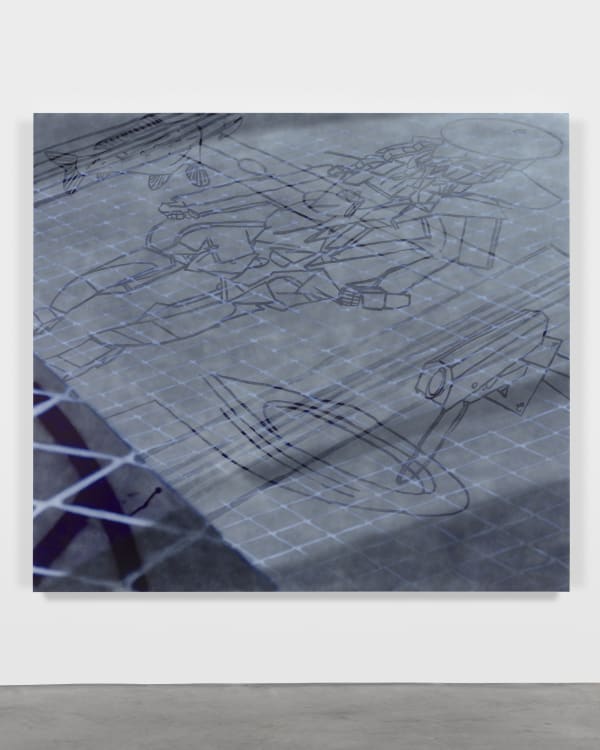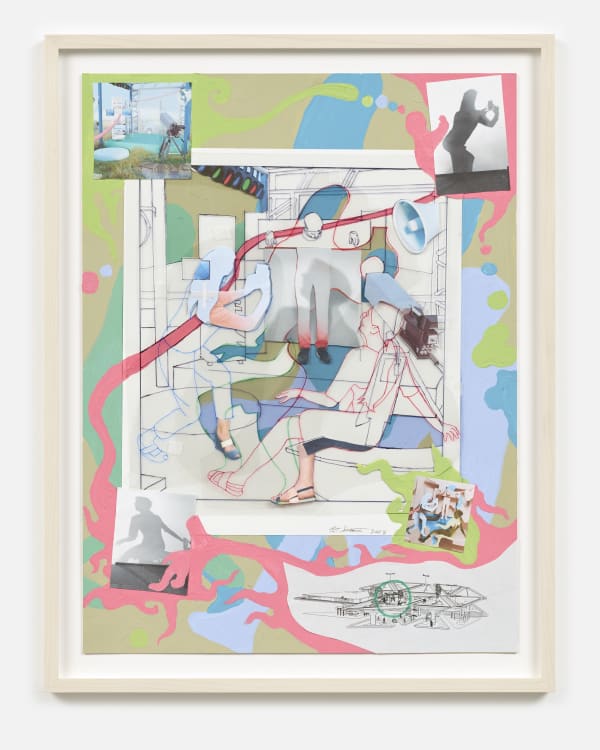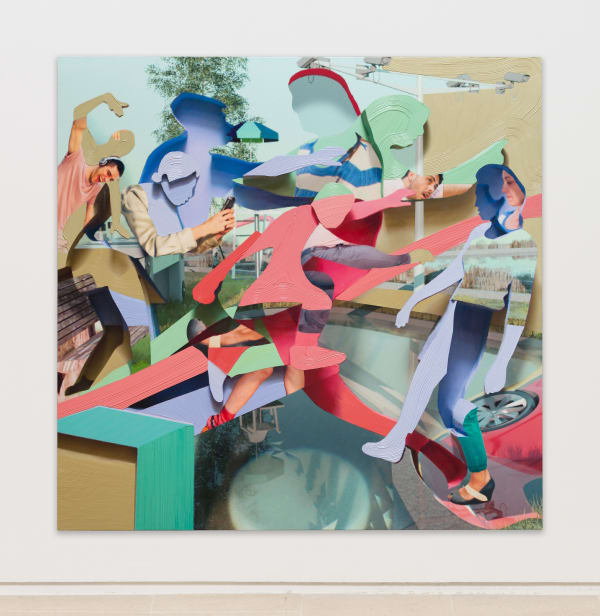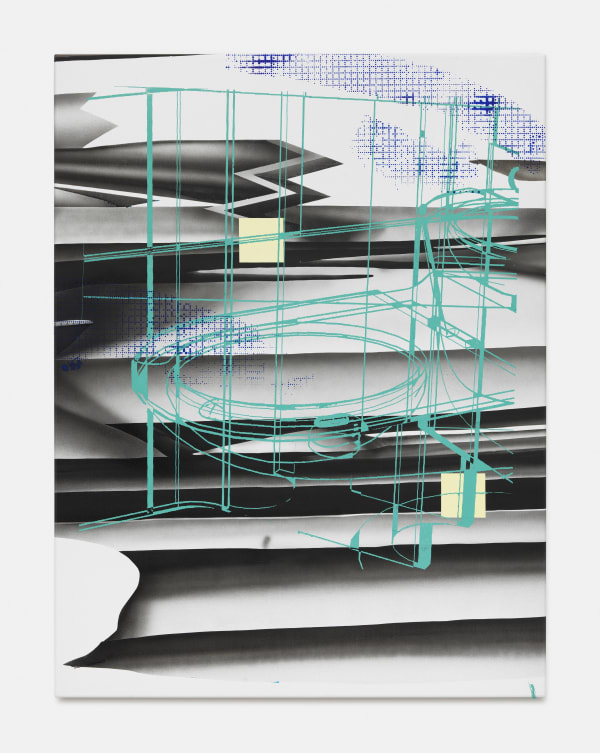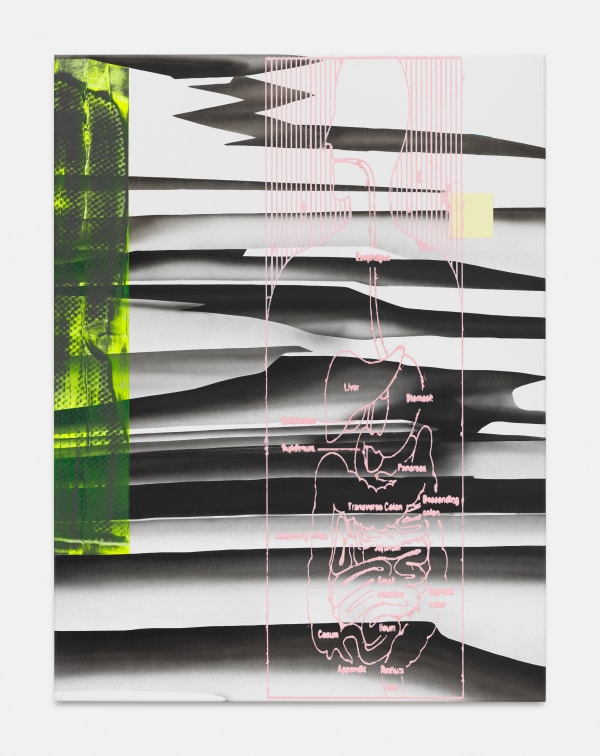CALL OUT TOOLS: ALEXANDER CARVER, PIETER SCHOOLWERTH, AVERY SINGER
-
 Alexander Carver, Pieter Schoolwerth, Taylor Shields, Avery Singer, Virtual Model for ‘Call Out Tools’, 2018
Alexander Carver, Pieter Schoolwerth, Taylor Shields, Avery Singer, Virtual Model for ‘Call Out Tools’, 2018 -
 Avery Singer, Reputation Demolition on Dereliction Island, 2018
Avery Singer, Reputation Demolition on Dereliction Island, 2018 -
 Avery Singer, Sensory Deprivation Tank, 2018
Avery Singer, Sensory Deprivation Tank, 2018 -
 Pieter Schoolwerth, Call Out Tools #1, 2018
Pieter Schoolwerth, Call Out Tools #1, 2018 -
 Pieter Schoolwerth, Call Out Tools #00, 2018
Pieter Schoolwerth, Call Out Tools #00, 2018 -
 Pieter Schoolwerth, Invisible Social Vandalism #1, 2018
Pieter Schoolwerth, Invisible Social Vandalism #1, 2018 -
 Pieter Schoolwerth, Unmolested Commonality #1, 2018
Pieter Schoolwerth, Unmolested Commonality #1, 2018 -
 Pieter Schoolwerth, Unmolested Commonality #00, 2018
Pieter Schoolwerth, Unmolested Commonality #00, 2018 -
 Alex Carver, For an Open and Sustainable Society, 2018
Alex Carver, For an Open and Sustainable Society, 2018 -
 Alex Carver, Post It, 2018
Alex Carver, Post It, 2018 -
 Alex Carver, Seated Model, 2018
Alex Carver, Seated Model, 2018 -
 Alex Carver, Tract, 2018
Alex Carver, Tract, 2018 -
 Alex Carver, Humiliation Theater, 2018
Alex Carver, Humiliation Theater, 2018
‘How people use public toilets,’ Alexander Carver writes across the surface of a recent work, appropriating the form of a public service announcement for painting and rarefying the otherwise anonymous voice of government language. Written as a fragment that hovers between inquiry and imperative, Carver’s painting qua announcement only passes as casual signage, and in fact, issues a command that cuts across the seemingly secure positions of artist and spectator to examine the unseen bureaucratic structures that predicate spaces of collective experience. The blunt administrative tone masks the work’s political address, extracting a culture of coercion latent in otherwise benign diagrams of the constructed world. Carver examines the individual in the process of being named, revealing the authorial mediations that subject and subordinate persons to limited routines of behavior through the design of social spaces. Painting, perpetually in the act of transgressing its own material identity, offers an antidote to the constricted experience of bodies increasingly bound by a new reality of interpersonal surveillance. In the confluence of conceptual and perceptual augmentation, painting mocks the imposing state of institutional decay, intervening in overstrained systems to announce new social designs aimed at reversing the compromised foundations of public space.Call Out Tools, a collaborative exhibition of new work by Alexander Carver, Pieter Schoolwerth, and Avery Singer, extends these concerns through a conversation in and about painting that considers the medium as an essential tool for new building. The artists bring not only their work into interaction, but engage their practices as a kind of urgent group consultation outlining alternative ways for generative coexisting. Referring to AutoCAD spatial rendering software and contemporary social phenomena, the title spans the exhibition’s digital and physical scope. An elaborate, collectively designed virtual model forms the framework for the show, from which each artist’s work is derived. The model proposes a radically new kind of public space, at once seductive and antiseptic, full of magnificent interconnected scenes that appear like a technological wonderland, triggering a nearly hedonistic excitement. Hot tubs and pools abound, as well as DJ stands, high-end workout equipment, panoramic televisions, and a concert stage, all situated in a futuristic structure of elevated, glass-bottom cisterns. But the Carver-Schoolwerth-Singer park of tomorrow is not merely a fantasy construct. Instead, their virtual design adheres to the laws of the material world, following rational systems and the physics of materials. Even the most extravagant design element—twisting tubes of pink and red that make up a vein and artery network—forms a plumbing system carrying water from the cisterns to various pools and bathrooms. Here, the questions of public norms and individual agency, of leisure and necessity, and of waste and resources determine the landscape of artistic vision.Seemingly arbitrary set pieces punctuate the park, which upon closer examination develop an iconography oscillating between the nefarious and the wholly permissive. Architecture turns punitive, and absolute transparency absorbs any refuge of privacy, risking the boundary between aesthetic purity and the pornographic. Out of this virtual template, a zone of collaborative habitation one step removed from the world, Carver, Schoolwerth, and Singer derive new vocabularies for painting, scrutinizing the dangers implicit to current social relations as a schematic for constructing new institutions of organized living. – Mike Cavuto














